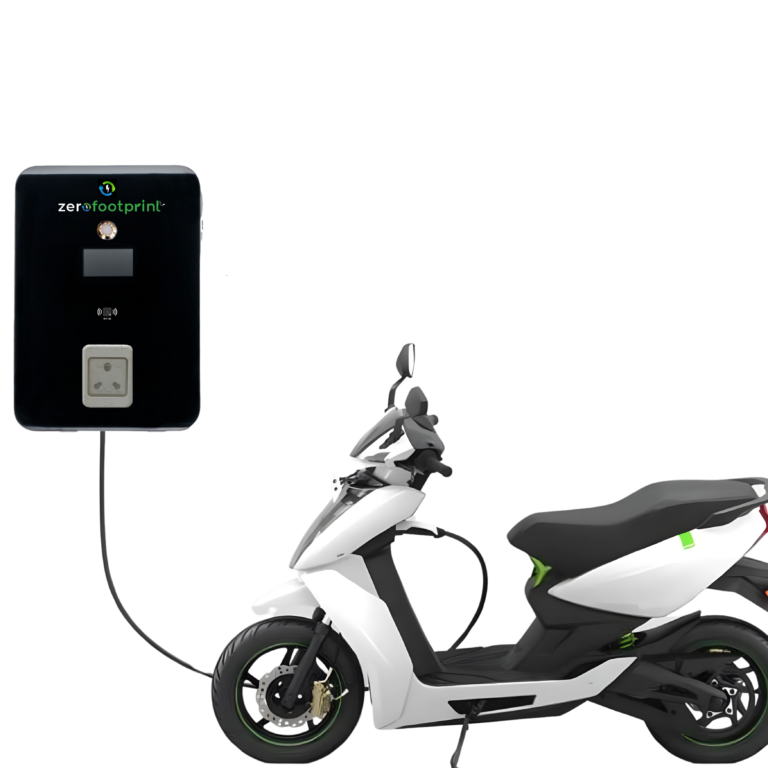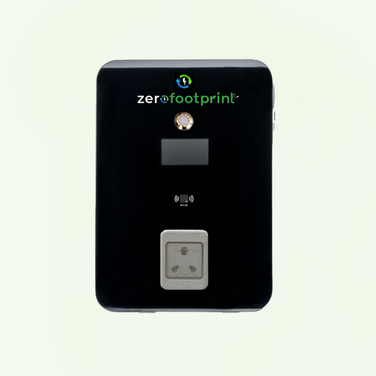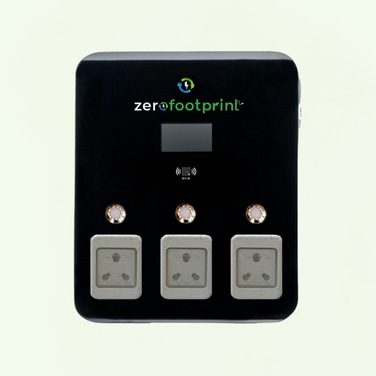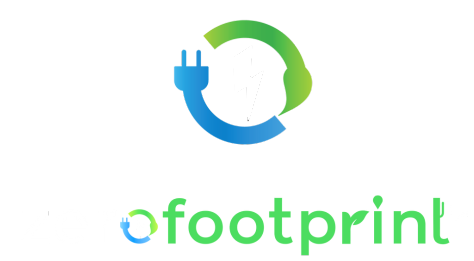Transform A Regular Socket into an AC Smart Socket Charger
AC Smart Sockets transform everyday outlets into powerful EV charging points by enhancing load management and optimising power delivery. Built-in safety features and a user-friendly payment gateway ensure a smooth user experience
Compatible
2/3/4 Wheeler EV
Safety
In-built Protection
Smart charging
RFID &CMS

Residential
Bungalow / Farmhouse Apartment Complex
Commercial
-Office Buildings
-Parking Lots
Fleets
-Last Mile Delivery
-2/3/4 Wheeler Fleet
Retail & Hospitality
-Shopping Malls
-Hotels / Resorts
Features
Convenience
Charge up immediately or schedule for later. No travelling to a petrol pump for refuelling
Savings
Charging at home is generally cheaper on a residential grid than public stations. Huge saving on fuel costs as well
Energy Efficiency
AC charging has the added advantage of being grid-friendly and brings a reduction in energy loss
Benefits

Quality Products
High-quality products designed and manufactured in India at very competitive prices. Both hardware and the software are in house, reducing costs and dependency on third party vendors.

Support
We provide full set-up, operations and marketing support to aid in customer acquisition and retention, ensuring a smooth and seamless experience. Our business partner will be able to create a unique branding

Transparent
With a commitment to transparent and consistent communication, we keep our partners informed about updates, changes, and improvements every step of the way. From addressing enquiries .
Technical Features of ZeroFootprint AC Smart Sockets
Load management
- Build-in energy meter
- Set up for external energy meter integration for dynamic load management
- Ready for integration with advanced smart building energy system
Built-in safety
- Overcurrent
- Overvoltage and undervoltage
- Ground fault
- Surge protectio
Connectors
- Overcurrent
- Overvoltage and undervoltage
- Ground fault
- Surge protection

Design
- IEC variants:
– Single phase up to 7.4 kW / 32A
– Three phase up to 22 kW / 32 A
- UL variants up to 19 kW / 80 A
- NEMA 3 enclosure
- All variants: IP54, IK10
Connectivity
- Ethernet RJ45
- Bluetooth
- Wifi
- 4G variants
- RS485 for connection to energy meter
- OCPP 1.6
- Authentication via ChargerSyncTM app and portal or RFID
- Configuration through TerraConfig app and portal
Our solutions

3.3 kW AC Smart Socket Charger
The perfect charger for cars, bikes, scooters and three wheelers, allows electric vehicle charge at lower power levels from standard household outlets or charging stations
- Dynamic load management
- WiFi and 4g connectivity
- Intuitive charger status display

10 kW Bharat AC001 Smart Socket Charger
The Bharat AC001 Charger is a smart socket charging solution designed to charge multiple 2, 3 and 4 wheeler EVs simultaneously with 3 sockets. With a power output of 3.3 kW per socket, the charger delivers high-speed charging, reducing wait-time, enabling efficient and flexible charging
- Our most compact charger
- WiFi and 4g connectivity
- Tidy built-in cable and gun stowage
return on Investment
- Customer Invests on a 3.3 KW AC Charger at the Cost Of INR 13,000+5,000. for installation = INR 18,000
- Per Unit coast of electricity from the DISCOM = approx Rs 8 per kW
- The Per Unit (Per KWh) Charging Rate Is Rs 20 For End Drivers
- Assuming 2 Cars (Tata Nexon EV Prime) Are Charged Per Day At The Station from a 10% battery charge to 100%
- 10% - 100% (battery charge = total consumption of 2.5kW per vechile
- Total units consumption for 2 vehicles per day = 5kW
- total revenue per day = 5kW * 365 = rs 36,500

Electric Vehicle Charging Time Calculator
EV Charging Time Calculator

Charger performance
28 min

Mini Cooper SE
Small car
32.6 kWh
27 min

Kia EV 6
Large car
51.1 kWh
39 min

BMW xDrive 50
Large SUV
111.5 kWh
2.5 hours

Proterra 40’ ZX5+
Bus
450 kWh
28 min

Mini Cooper SE
Small car
32.6 kWh
27 min

Kia EV 6
Large car
51.1 kWh
39 min

BMW xDrive 50
Large SUV
111.5 kWh
2.5 hours

Proterra 40’ ZX5+
Bus
450 kWh
28 min

Mini Cooper SE
Small car
32.6 kWh
18min

Kia EV 6
Large car
51.1 kWh
26 min

BMW xDrive 50
Large SUV
111.5 kWh
2 hours

Proterra 40’ ZX5+
Bus
450 kWh
28 min

Mini Cooper SE
Small car
32.6 kWh
14 min

Kia EV 6
Large car
51.1 kWh
24 min

BMW xDrive 50
Large SUV
111.5 kWh
2 hours

Proterra 40’ ZX5+
Bus
450 kWh
28 min

Mini Cooper SE
Small car
32.6 kWh
27 min

Kia EV 6
Large car
51.1 kWh
39 min

BMW xDrive 50
Large SUV
111.5 kWh
2.5 hours

Proterra 40’ ZX5+
Bus
450 kWh
28 min

Mini Cooper SE
Small car
32.6 kWh
18 min

Kia EV 6
Large car
51.1 kWh
26 min

BMW xDrive 50
Large SUV
111.5 kWh
2 hours

Proterra 40’ ZX5+
Bus
450 kWh
28 min

Mini Cooper SE
Small car
32.6 kWh
14 min

Kia EV 6
Large car
51.1 kWh
24 min

BMW xDrive 50
Large SUV
111.5 kWh
2 hours

Proterra 40’ ZX5+
Bus
450 kWh
QUESTIONS & ANSWERS
How Does An EV AC Charger Work?
Unlike Level 2 Mode 2 chargers that plug into a regular wall outlet, Level 2 Mode 3 EVSE AC chargers connect directly to the electrical grid. This allows for safer and faster charging, typically delivering between 7kW and 22kW of power. However, the actual charging speed depends on two factors: the charger’s output and the car’s onboard charger capacity. Both the charger and the car’s onboard charger need to be compatible for maximum power delivery (between 7kW and 22kW).
How Do I Get My Charger Installed?
We’ll ensure a smooth installation process by supporting you every step of the way. Our team will assess your site and recommend any necessary upgrades to your utility supply or electrical grounding. Once the hardware and software are installed, we’ll hand over your fully functional charging station. Feel free to contact us if you have any questions.
What Types Of EV AC Chargers Are Available?
EV AC chargers come in various forms including Level 1, Level 2, and Level 3 (DC fast chargers). Level 1 chargers use a standard household outlet, Level 2 chargers require a dedicated charging station, and Level 3 chargers are high-powered units typically found in public charging stations.
How Long Does It Take To Charge An EV With An AC Charger?
Charging time depends on the charger type (power output), vehicle battery capacity, and remaining charge. Level 1 chargers are slow, taking several hours for a full charge. On the other hand, Level 2 chargers are faster, typically refilling most EVs overnight. Level 3 stations are designed for rapid charging, delivering up to 80% charge in just a few minutes.
Are EV AC Chargers Compatible With All Electric Vehicles?
Most EV AC chargers are compatible with all electric vehicles that use the standard charging connector types. However, it’s crucial to check the compatibility of the charger with your specific vehicle model.
Can I Charge My EV Using A Standard Wall Outlet?
While Level 2 charging stations typically use a higher voltage outlet (240V) for faster charging, there are some Level 2 chargers that can use a standard 240V household outlet. These Level 2 chargers offer slower charging speeds compared to their higher-voltage counterparts. However, they’re a convenient option for overnight charging or when faster charging isn’t necessary.

Zero Footprint isn’t just about charging your electric vehicle, it’s about igniting a greener future.
Any Questions? Ask Us!!
Magna voluptatum dolorem! Dolores! Sociosqu commodo nobis imperdiet lacinia

